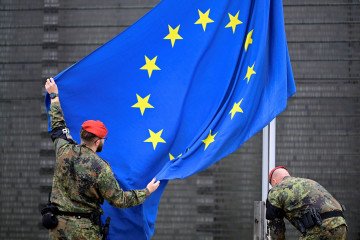- Category
- World
In Russia, Religious Rituals and Elite Private Clubs Shape War Strategy
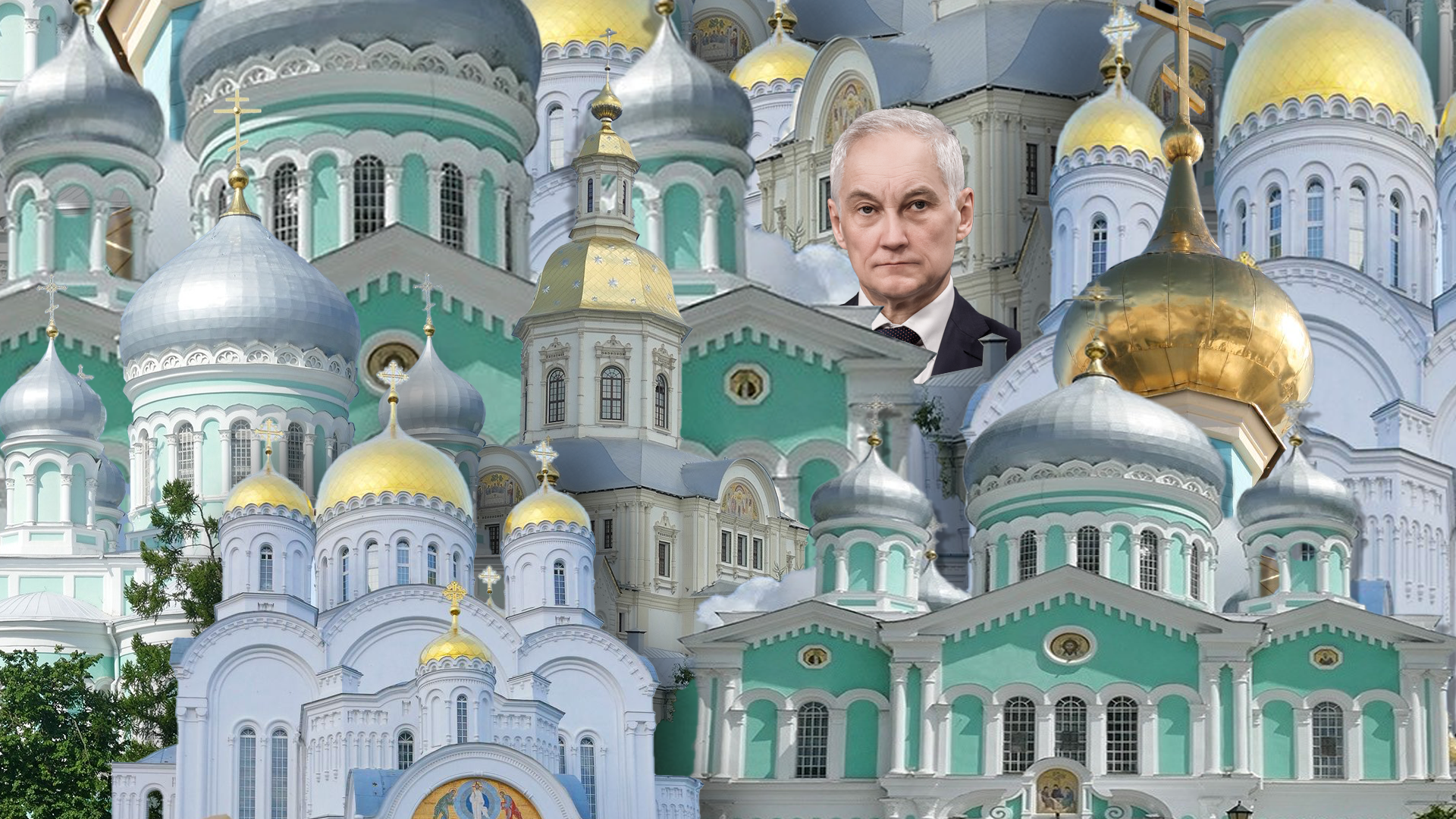
Russia’s new Minister of Defense is a civilian and his name is Andrey Belousov. He is a long-time friend of Vladimir Putin and a member of a closed religious brotherhood.
In mid-May, Vladimir Putin predictably reshuffled some of the leadership of Russian ministries. However, there were some surprises: after 12 years, Sergey Shoigu, a long-time friend of Putin, was removed from the position of Minister of Defense. His replacement, Andrey Belousov, also a civilian, initially seemed an unlikely candidate. However, Putin's logic seems to be entirely understandable.
Who is Andrey Belousov?
Belousov is Putin's long-time acquaintance who’s worked together with him for many years. Before Belousov’s new appointment, he held the position of Vice President for Economic Affairs and was a personal adviser to the President of Russia.
His appointment as Minister of Defense is driven by the need to oversee state expenditures: about a third of the Russian budget goes to the war in Ukraine, with around 8% of GDP spent on defense. In relative terms, only Ukraine—forced to defend itself against Russian aggression—spends more of its budget on the war.
In Russia, it is quietly acknowledged that the current military leadership is incapable of effectively using the allocated funds due to corruption, outdated systems, and a lack of necessary experience. Belousov is expected to change this situation and improve the efficiency of the Russian defense industry. Insiders claim that he is far removed from corruption and can demonstrate effective management. However, journalists have already found evidence to the contrary: Belousov's family earns hundreds of millions of rubles from government contracts.
In other words, Putin's goal is to ensure that Russia can wage war more effectively, and therefore, the defense industry should be led not by a military man but by an economist. Belousov is the ideal candidate not only because of his past but also because of another shared interest with Putin—performative religiosity.
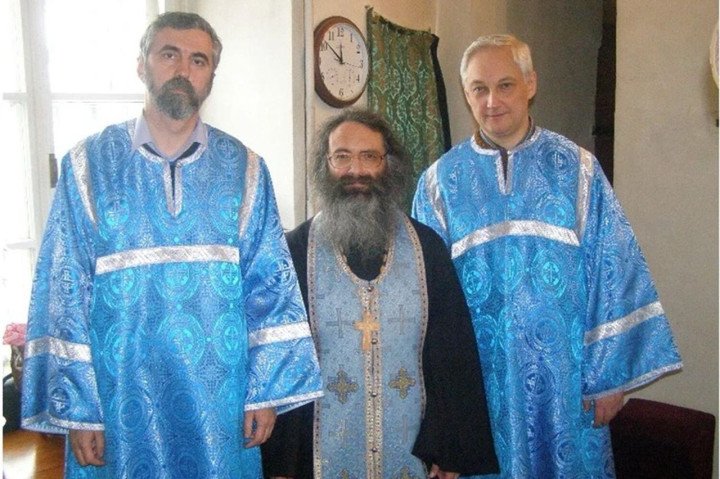
Performative religiosity, not faith, of Russian elites
The Russian political elite has its own fetish—performative religiosity. This is somewhat perplexing: the Soviet Union suppressed religion for many decades and promoted atheism. Nevertheless, in independent Russia, the cult of performative religion, not faith itself, has returned: entrepreneurs support the Moscow Patriarchate with large donations, and politicians—namely Putin—have made church leaders serve them. Churches often employ spies and propagandists working in Russia's interests. Even in the USA, the Orthodox Church received a warning from the FBI: clergymen are suspected of recruiting agents to work for Russia.
This performative religiosity required centers with sacred significance where politicians and businessmen could “perform” their religiosity. Russian officials had their "favorite" places in Russia, including the Valaam and Solovetsky Monasteries.
Recently, however, the political elite of Russia has a new favorite: the Diveyevo Monastery, located 500 km from Moscow. It is convenient and quick to reach, without the need to fly to another country. The monastery, like all others, fell into decline during the Soviet Union but began to revive in the early 21st century. Russian President Vladimir Putin first visited there in 2003. Today, one of the patrons of the Diveyevo Monastery is the new Russian Minister of Defense, Andrey Belousov.
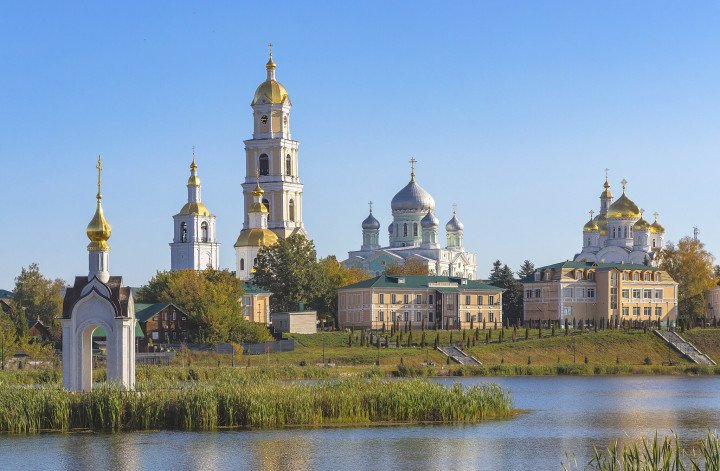
The closed religious club
The Russian political elite needed some common interest, something that could unite them, creating a kind of closed club where they could meet and discuss state affairs and more.
Over time, it became clear that religion was ideal for this purpose. Fishing or hunting are not interesting to everyone and must be genuinely loved. Other hobbies, like horse racing, motorsports, or extreme sports, are often expensive and not understood by voters.
Religion is understandable. No one will check your deep knowledge in this matter; it is accessible to ordinary Russian citizens and often commands respect, especially when officials or businessmen make donations or build temples. The emphasis is on religiosity, not faith: the latter is of no interest to these politicians.
Therefore, religion became the basis for closed elite political clubs in Russia. Mount Athos was the first example; all Russian top officials and oligarchs flew there—donating huge sums of money to the center. A few years ago, the total donations reached half a billion dollars. Later, around monasteries in Russia, politicians and businessmen began to buy plots and build country houses. Monasteries became centers of large political closed clubs, and officials sought to create their own "clubs." One such initiator was even the President of Russia from 2008-2012, Dmitry Medvedev, but his club was not successful, and the chosen monastery did not become popular.
Belousov "joined" religion in 2007 and later joined the Diveyevo Monastery. Among those who launched the Diveyevo Brotherhood is Sergey Kiriyenko, a Russian official who is also responsible for work in the Russian-occupied Ukrainian territories today.
The brotherhood is popular among Kremlin elites, frequently visited by Russian Prime Minister Mikhail Mishustin, as well as most ministers and officials from various regions. For them, the monastery is something akin to a closed elite club. Publicly, they visit temples and light candles. In reality, they hold secular events and discuss affairs. The monastery grounds feature VIP rooms, and politicians are hosted with lavish dinners in large halls.
The Diveyevo Brotherhood is often compared to a Masonic lodge. In reality, the Russian tradition of religious brotherhoods does not have as many legends and myths, but visitors to the Diveyevo Monastery have a custom. More than a hundred years ago, a ditch was dug around the monastery—an ordinary engineering structure. According to legend, the Antichrist cannot cross this ditch, thus protecting the monastery from evil forces. This is obviously a pagan cult that has taken root in a Christian monastery. Visitors to the monastery walk around this ditch, believing it will protect them from evil spirits.
This mysticism has been adopted by politicians who visit the monastery. They also walk around the 2-meter-wide and nearly 800-meter-long ditch. People who control the world's second-largest nuclear arsenal walk around the ditch, believing it will save them. Among them is Andrey Belousov, the new Russian Minister of Defense.
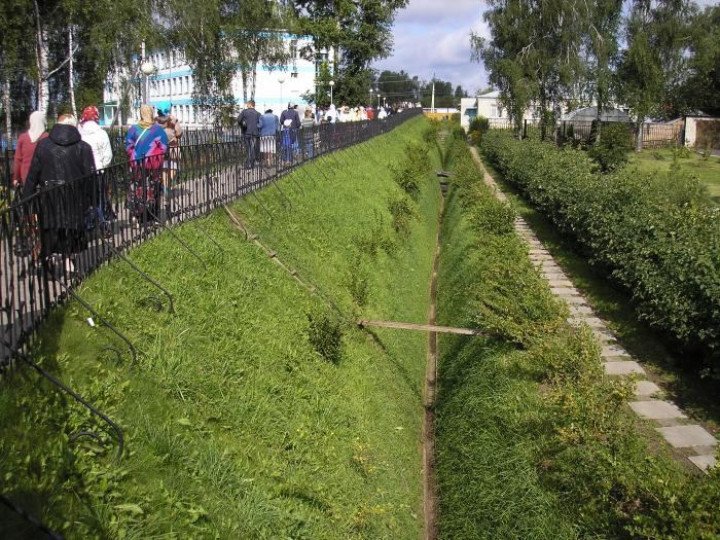
-29a1a43aba23f9bb779a1ac8b98d2121.jpeg)
-27ef304a0bfb28cb4215e5deede4a665.png)
-46f6afa2f66d31ff3df8ea1a8f5524ec.jpg)

-605be766de04ba3d21b67fb76a76786a.jpg)
-2c683d1619a06f3b17d6ca7dd11ad5a1.jpg)

